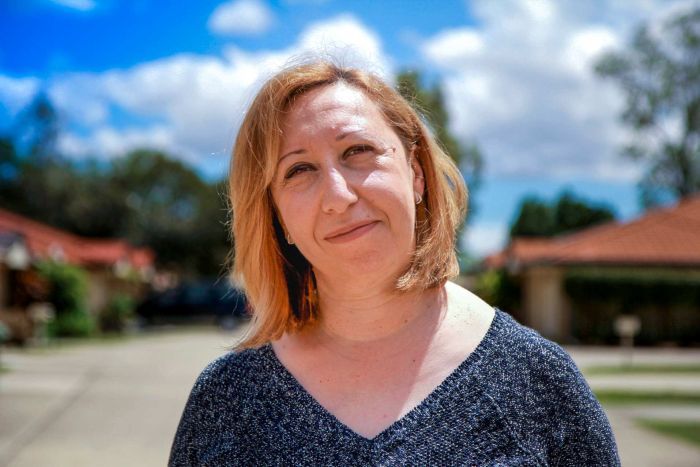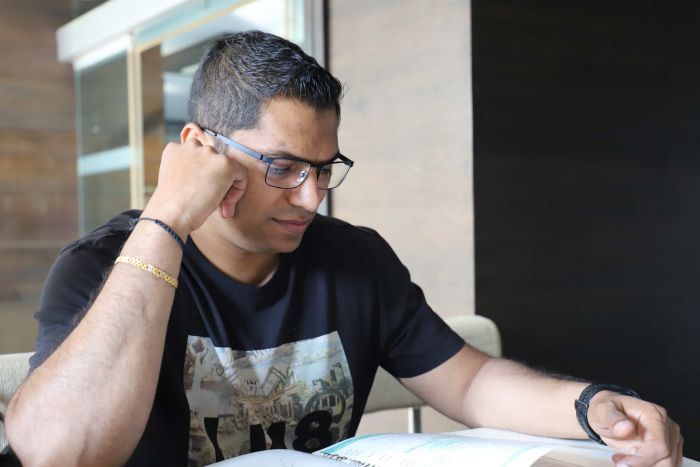Manal Aqrawe is a doctor with more than 20 years of experience, but she can't get a job in Australia — even outside medicine.
Born in Iraq, she left when Mosul fell to Islamic State — losing her home, job and "anything related" to her previous life "within minutes".
Manal now calls Brisbane home, and she feels lucky to have "a second chance in a safe place".
But despite passing stringent medical qualifications here, she's found it difficult to get a hospital position.
"The reason was due to lack of local experience or local referees, and huge competition for limited job vacancies," she tells RN's This Working Life.
Even with an unpaid stint as an observer at a hospital, she's still unemployed and is now looking for "any opportunity" for work.
It's a sobering story, but not an isolated one.
New migrants trying to negotiate Australia's workforce face a litany of uphill battles: lack of skills recognition; uncertainty of work; a greater risk of vulnerability and exploitation.
According to the Australia Talks National Survey, 86 per cent of new migrants think companies will always try to exploit workers if they can.
And 68 per cent said they'd be happier with a better job.
So what are some of the barriers to entry for newly-arrived migrants in Australian workplaces — and the challenges they face once they're there?
'Doctors end up driving taxis'
Mohammad Al-Khafaji, the CEO of the Federation of Ethnic Communities Councils of Australia, says qualification recognition is just one reason migrants find it hard to gain relevant work.
"There is a culture in Australia where qualification doesn't really mean much," he says.
"In Australia, we have this obsession with 'Australian experience'."
Chirag Khunt, a pharmaceutical science graduate who migrated to Australia from India in 2011, experienced this first-hand.
"The biggest question [which was a] challenge to me was: 'do you have local experience?' which I don't," he says.
But it hasn't come easily.
When he first moved to Australia, applying for work was a "challenge" because he wasn't sure how to format a CV and had "no clue" about cover letters.
"I started applying for jobs and ended up applying for 250 plus jobs in four to five months," he says.
"Every day I was getting emails saying my application was unsuccessful.
"Even though I have good experience, my experience was overseas."
Mr Al-Khafaji sees this as a "missed opportunity" for employers, particularly in fields where there are skills shortages.
"If we continue on the path that we are continuing on now, we will miss out on a huge percentage of very qualified, very innovative people that we should be welcoming," he says.
"It's making some of our doctors or engineers end up driving taxis or Ubers."
Temporary visas
While Chirag has permanent residency status, many other new migrants arrive on temporary visas.
Joanna Howe, from the faculty of law at the University of Adelaide, says such visa conditions can result in a "restricted job market".
"One of the things that we've seen over the last two decades is a real shift to temporary visa holders being the mainstay of the labour migration program," she says.
"For international students, they can only work 40 hours a fortnight, so they need to find an employer willing to hire them for that amount."
In such cases, Dr Howe says employers are "much less likely" to hire migrant workers who are on temporary visas.
"They'd rather go with someone who's a sure bet and going to stay in Australia for longer."
And once hired, new migrants on temporary visas are exposed to a greater degree of job insecurity and vulnerability — as the 2019 Migrant Workers' Taskforce report highlights.
The report found 50 per cent of almost 880,000 migrant workers in the country may be being underpaid.
"While we know that there are many good employers across the country, the fact of the matter is … and the taskforce report highlights this, that some aspects of our visa design creates these structural vulnerabilities for temporary migrants," Dr Howe says.
Employers become in effect the "immigration sponsor as well as an employer" and that creates "additional vulnerabilities" for migrant employees.
"There's lots of incentives for these workers not to complain, because if they do complain and they report exploitation, they will lose their job and therefore possibly their right to stay," Dr Howe adds.
'A sense of resilience'
For Chirag, part of the learning curve has been around learning "interpersonal skills" at work.
"That's hard for migrant to understand," he explains, "because they're coming from one part of the world to another part of the world with the same mindset".
Coming from India, he had the requisite technical skills.
"But when it comes to talking with people, that's the scary part. I was good with computers, but I was not good with people," Chirag says.
New migrants like Candida Rego say network-building has been key to her transition to working in Australia.
FOR FULL STORY CLICK THE LINK BELOW:
www.abc.net.au/news/2019-10-31/migrant-experience-of-work-australia-talks/11600862



 RSS Feed
RSS Feed